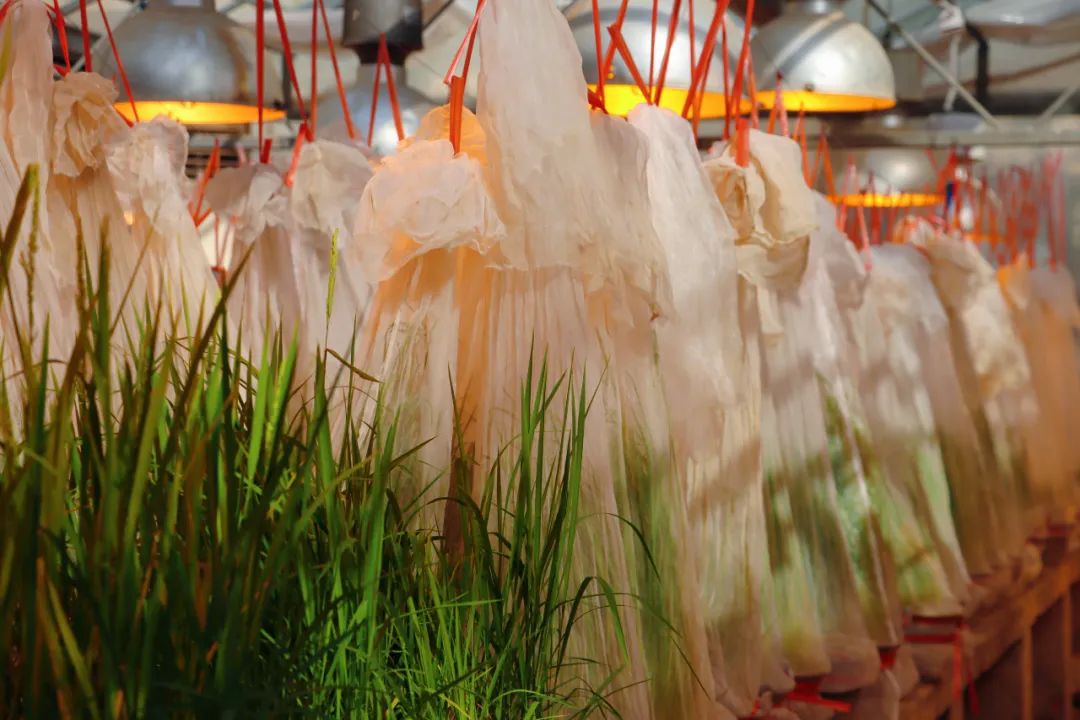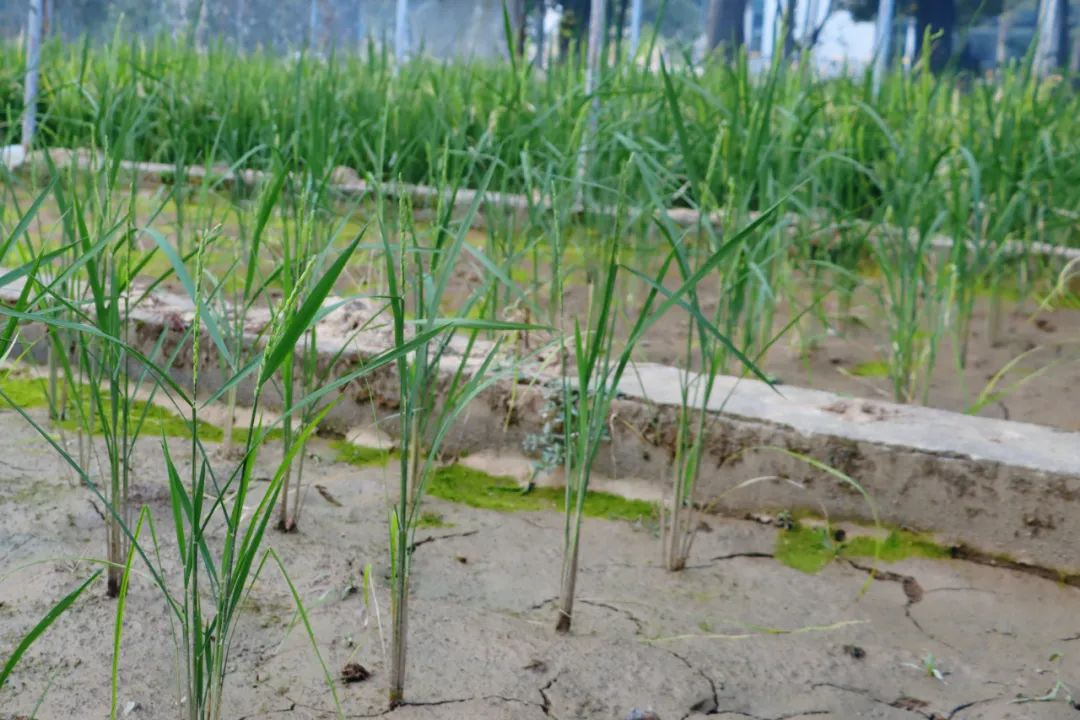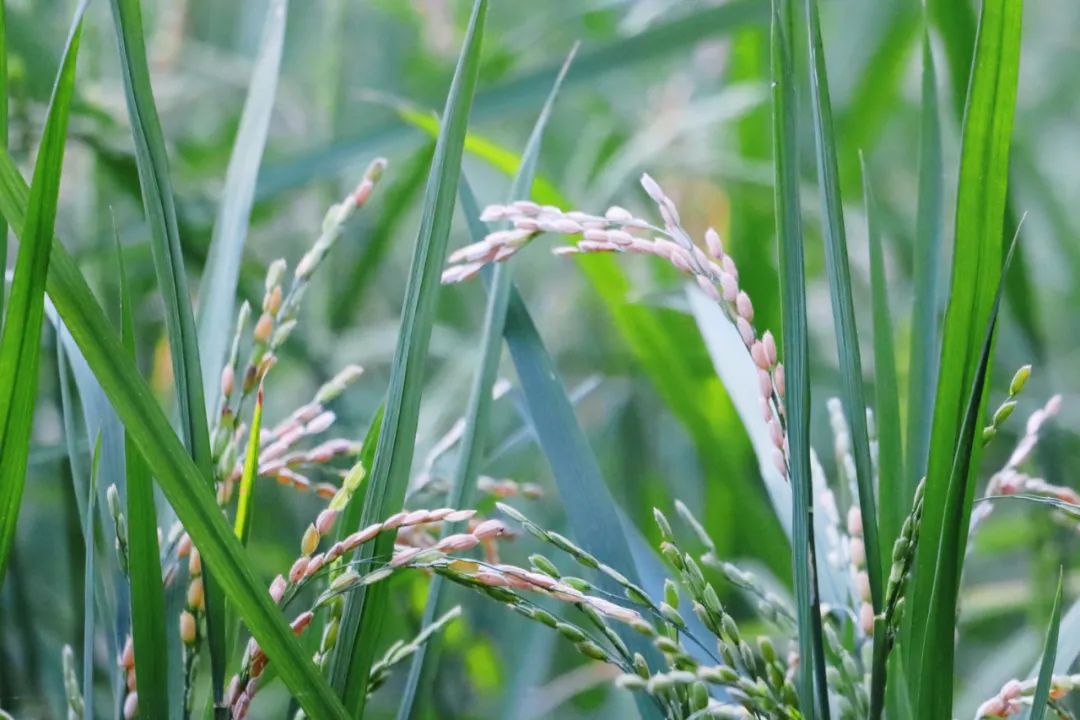When passing by Cechuanshan Road inside Wuhan University (WHU), the first thing to come into view is lush green farmland divided into several plots. Further in, planted pots in greenhouses appear, some of which are furnished with white covers. Occasionally, students can be spotted wearing waders and sleeves, busying themselves in the fields. Why do such green and white farming fields exist on WHU’s campus?
It turns out that these fields are used as experimental fields for the students and research teams of the College of Life Sciences. The greenhouses mostly house rice plants, and the surrounding enclosure effectively prevents birds from eating experimental crops. The ‘white cover’, meanwhile, protects the experimental materials and prevents environmental pollution during the research of pest-related experiments. Moreover, the combination of fields and greenhouses ensures continuous experimentation throughout the year.

Crops in the laboratory, some hidden under white covers
During the rice cultivation season, the students would ‘dive into’ their own small fields, planting and transplanting seedlings just like farmers, then observe and record the growth every day. Sometimes, they will also take samples from the field to extract DNA and RNA for experiments and lucubrate their molecular structure, aiming to discover the mystery of high resistance and high yield of rice.
When first entering the experimental field, Zhang Jiajiao, a recent graduate with a doctorate in botany, exclaimed, “The experimental conditions of our university are very sound, and you can plant experimental materials even without leaving the university, which is really convenient.”
“It was such a surprise when I was first told there was an experimental field on campus,” recalled Zhang Qian, who just got her Ph.D. in genetics. She said, “I could work in the field, grow the varieties, make observations, and record findings—all on my own.” She added that in the past they usually went to the experimental field in Hua Mountain an hour and a half’s drive away. However, after planting the required experimental materials in the field on campus, they can observe and record the growth of rice twice a day. “Especially in summer, it helps a lot to observe the experimental data every day,” Zhang Qian stressed.

Crops in experimental fields
It is doctoral students who mainly use this field to complete their doctoral thesis, but they also introduce the field to interested graduate and undergraduate students. When the rice transplanting season comes, it will be open to primary and middle school students. “Who knows the rice that feeds is the fruit of hard toil” is not only a poem mentioned frequently, but also the actual experience here.
In addition to the student’s individual research, the State Key Laboratory of Hybrid Rice of WHU also relies on this field for research. The laboratory was founded in 2011 by the late Academicians Yuan Longping and Zhu Yingying. It consists of two units, one of which is known as Hu’nan Hybrid Rice Research Center, and the other is located in the College of Life Sciences at WHU. Although the two academicians are no longer with us, their scientific pursuit of the “rice harvest dream” has been inherited and further developed by a new generation of researchers, and the eternal responsibility of generations of “rice people” is to continuously ensure national food security.

Laboratory for research teams
The most eye-catching in the laboratory must be the red lotus hybrid rice, which is an original scientific and technological achievement of WHU and one of the important scientific research achievements of the late Academician Zhu Yingying’s team. Sporting characteristics such as high yield, superior quality, wide adaptability, and high resistance, red lotus hybrid rice is constantly innovated to meet the needs of modern agricultural production through continuous breeding and improvement. Facing complex climate change and environmental challenges, technological breakthroughs and variety innovation in breeding could continuously guarantee the security of future food production.

Red lotus hybrid rice
“Food security depends on ourselves!” The small experimental field on the campus of WHU is a microcosm of successive scientific research projects and inherits and records the dreams of the older and new generations of researchers. Taking over the baton, the new generation forms the backbone of our country, takes on national food security as their own responsibility and seizes “agricultural core technology” firmly in their own hands.
Rewritten by Cheng Shiwen
Edited by Li Jing, Jin Chenwu, Zhang Yilin, Sylvia, Xi Bingqing